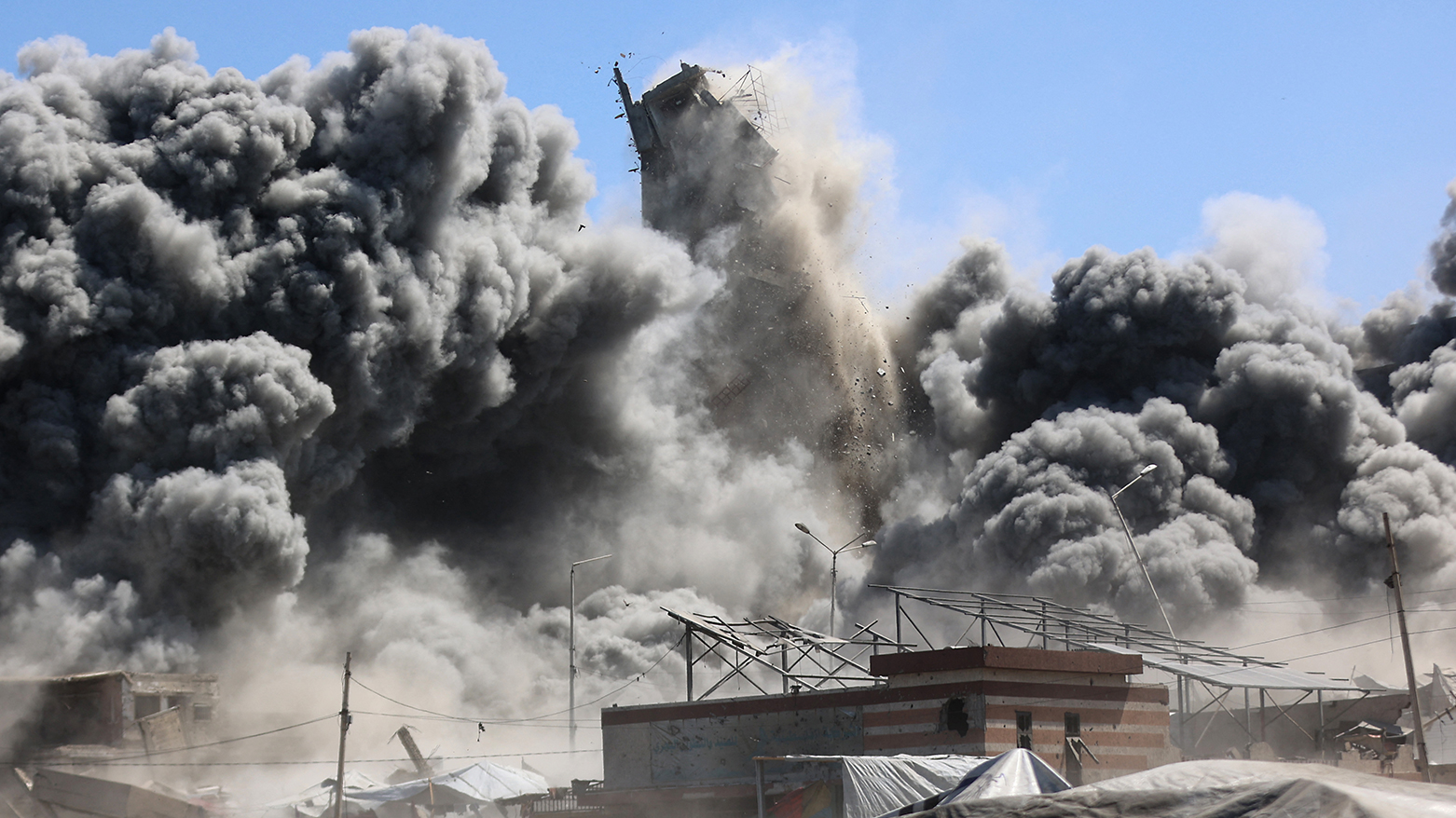Khan Younis Under Fire as Israel Destroys Tunnels and Kills Fighters
Israeli army destroys dozens of kilometers of tunnels in Khan Younis, kills militants linked to October 7 attack. The operation is part of an intensified campaign in southern Gaza amid broader regional escalation.

ERBIL (Kurdistan24) – The Israeli army announced on Thursday that its forces had destroyed dozens of kilometers of underground tunnels in Khan Younis and killed militants accused of participating in the October 7 assault, as part of an intensified military campaign in southern Gaza.
Avichay Adraee, the Israeli army’s Arabic-language spokesperson, confirmed that the 36th Division had completed its latest operational phase in Khan Younis.
“The 36th Division destroyed dozens of kilometers of underground tunnel routes in Khan Younis and eliminated terrorists who participated in the bloody massacre of October 7,” Adraee declared in a statement.
He added that Israeli forces had been working for months to entrench what he described as “operational control” in the area, establishing the “Magen Oz axis,” a strategic corridor cutting across Khan Younis from west to east.
According to the military, hundreds of militants have been killed in Khan Younis during these operations, including individuals who infiltrated Israel and directly took part in the October 7 attacks.
The statement further revealed that the destroyed tunnels included networks equipped with sleeping quarters used by Hamas, alongside weapons storage depots and other military infrastructure.
“In the course of this activity, the forces destroyed hundreds of military facilities belonging to terrorist organizations in the sector, including weapons warehouses,” Adraee concluded.
The escalation in Khan Younis came only a day after Israeli Prime Minister Benjamin Netanyahu issued a stark warning to Qatar, following an unprecedented strike in Doha that targeted Hamas’s political leadership.
In a video message posted to the official account of the Prime Minister’s Office on X, Netanyahu likened the October 7 attack to the September 11, 2001 atrocities in the United States.
“We also have a September 11th. We remember October 7th. On that day, Islamist terrorists committed the worst savagery against the Jewish people since the Holocaust,” Netanyahu said.
Comparing Israel’s operation in Doha to America’s pursuit of al-Qaeda, he asserted that Israel had “acted along those lines” by striking Hamas figures on Qatari soil. He accused Doha of harboring Hamas leaders, providing them with “financing, safe haven, and sumptuous villas,” and warned: “To Qatar and all nations who harbor terrorists—you either expel them or bring them to justice, because if you don’t, we will.”
The strike in Doha triggered sharp international condemnation, with Qatar, Saudi Arabia, the United Nations, and several regional states decrying the action as a violation of sovereignty and a destabilizing escalation.
The destruction of tunnels in Khan Younis, coupled with Israel’s strikes in Qatar, Yemen, Syria, Lebanon, and Gaza within a 48-hour span, underscores the dramatic expansion of the conflict.
While Israel insists its operations are aimed at dismantling “terrorist networks” across the region, international observers warn that the escalation risks igniting a broader regional war.
As Netanyahu framed the struggle in existential terms, linking October 7 to 9/11, the conflict now appears to be entering one of its most volatile phases, with the Gaza battlefield at the epicenter of an increasingly regional confrontation.